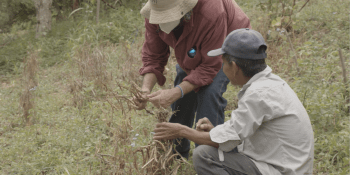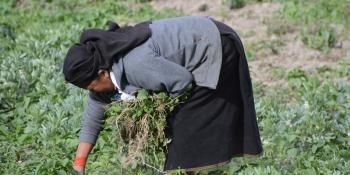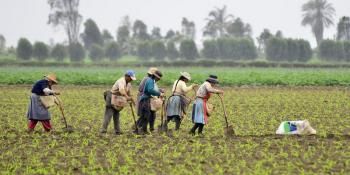Fresh perspectives on the future of cattle in Brazil
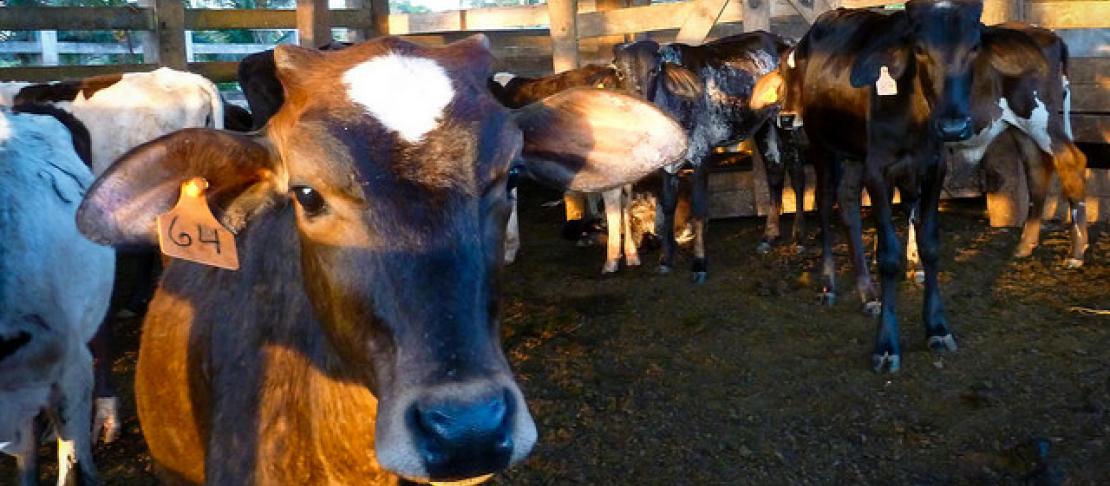
Field research in four states in Brazil clarifies common and emerging ranching practices and rancher motivations to adopt more sustainable practices. Resultant greenhouse gas emissions estimates to come.
With the fastest-growing herd of any country, Brazil’s cattle industry is frequently cited as the country’s single largest contributor to greenhouse gas emissions. In the last 50 years, over 17% of the Amazon has been deforested, largely in support of ranching.
Funded by the Global Innovation Initiative and in partnership with the Universities of Michigan, Oxford, and São Paulo, the CGIAR Research Program on Climate Change, Agriculture and Food Security (CCAFS), Imaflora and Rainforest Alliance, this research is part of a project to assess sustainability in the cattle and coffee sectors in Brazil. The more mature sustainability programmes in the coffee sector will inform relatively new sustainability initiatives in the cattle sector.
University of Michigan graduate student researchers travelled to four states and visited farms representing five “best practice” programmes, as well as analogous non-participating farms. Early analysis of the collected data shows a promising trend toward compliance with Brazilian laws requiring the preservation of forested land on private parcels in the Amazon region.
Movement toward intensification
Intensification—the production of more cattle in less time and on less land—is the dominant trend in sustainability programmes in Brazil. Researchers found strong uniformity in rancher understanding of intensification as the next wave in cattle ranching, indicating that the message is getting across to ranchers among this sample population.
Perhaps most revealing in the data are rancher attitudes toward the changing state of the cattle industry and emerging practices like intensification—and the importance of the personal touch. Participants associated their participation with increased ranch productivity and displayed varying levels of association with sustainability or conservation.
Ranchers most satisfied with participating in sustainability initiatives cited the benefit of receiving personalized technical assistance from local nonprofits administering the programmes. (The researchers also benefited from generous personal attention from these organizations. Conducting interviews in remote locations would not have been possible without them.)
Interviews revealed a lack of belief that sustainably-raised beef could garner price premiums, pointing researchers toward an important gap between individual rancher perspectives and the cattle industry as a whole.
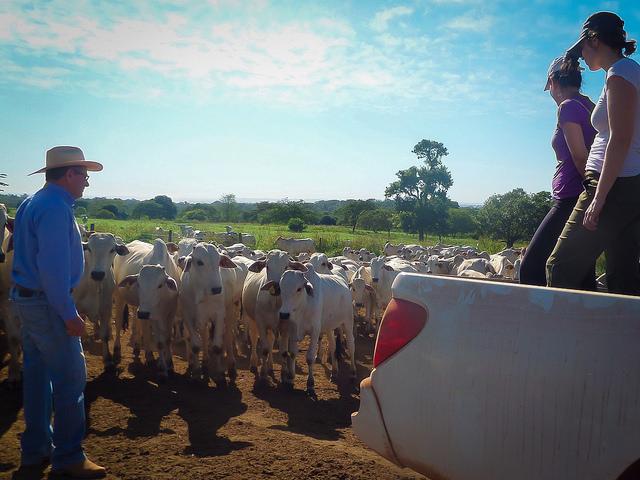
41 cattle ranchers from 4 states in Brazil took the time to be interviewed by University of Michigan researchers in August. Photo: M. rodkin, University of Michigan
Ensuring climate benefits
A focus on the productivity of existing pasture lands has led to a fragile alliance among agricultural and environmental interests, offering some hope that future global demand for beef can be met without further deforestation of the Amazon.
As researchers from the University of Michigan continue to analyse the wealth of information collected via these frank discussions with farmers, they hope to produce a more accurate quantification of the carbon implications of emerging practices than those previously available. Armed with data, future iterations of sustainability programmes for cattle ranching may be able to better target practices that produce the greatest reduction in carbon emissions.
Meghan Bogaerts, a graduate student at the University of Michigan School of Natural Resources and Environment, authored this blog.
Julianna White, program manager for CCAFS Low Emissions Agriculture, served as editor.

